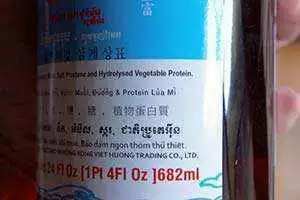Celiac.com 02/28/2013 - An entry in the Patient Journey section of the British Medical Journal highlights the confusion around non-celiac gluten sensitivity (Open Original Shared Link).
 In the entry, a person without celiac disease describes how, after years of unexplained health problems, a chance conversation on an internet forum led him to try a gluten-exclusion diet.
In the entry, a person without celiac disease describes how, after years of unexplained health problems, a chance conversation on an internet forum led him to try a gluten-exclusion diet.
Celiac.com Sponsor (A12):
He claims he saw dramatic results: “Within a week of excluding gluten and lactose from my diet, all my symptoms had dramatically improved in just the same way as when I previously starved myself.”
After accidentally eating gluten the symptoms returned “within hours.” Such dramatic relief of symptoms led him to seek out what he calls “proper diagnosis.”
This, in turn, led him to Kamran Rostami, whose account of the condition supplements the patient’s story. Rostami says that the patient, like others had "negative immunoallergy tests to wheat and negative coeliac serology; normal endoscopy and biopsy; symptoms that can overlap with coeliac disease, irritable bowel syndrome, and wheat allergy.” Symptoms resolved on a gluten-free diet. Since there are no biomarkers, gluten sensitivity is the ultimate diagnosis of exclusion.
However, these facts, along with the lack of a disease mechanism have left some clinicians unconvinced.
Some, like Luca Elli are calling for aspects of gluten sensitivity clarified before doctors start “treating” people for this new “disease” (Open Original Shared Link).
Elli asks some logical questions, such as "Is gluten sensitivity different from irritable bowel syndrome, or is it simply a variant that benefits from a common therapeutic approach?"
To get an answer, many clinicians are looking to published literature (Open Original Shared Link). For example, a few randomized trials suggest that non-celiac gluten-sensitivity is a real condition, affecting 6% of nearly 6000 people tested in a Maryland clinic.
A multi-center trial is currently recruiting people without celiac disease, but with gluten sensitivity for a challenge with gluten or placebo.
Meanwhile, clinicians are advising that patients who have had celiac disease excluded through blood tests and duodenal biopsy be told that they may suffer from a newly recognized clinical condition which is not yet fully understood.
In related news, a letter published this week by David Unsworth and colleagues describes an “explosion of requests” for serological testing since 2007, particularly from primary care physicians (doi:10.1136/bmj.e8120). They note that NICE guidance in 2009 has done little to reduce the requests.
They also point out that, as the number of people being tested has risen, the rates of confirmed celiac disease has fallen to just over 1%, which is no better than rates achieved by random screening.
They call for more targeted testing, limited to groups in whom detection rates are highest: children with failure to thrive, family history, or type 1 diabetes, and adults attending diabetes and gastroenterology clinics.
However, such advice would seem to ignore cases like those described in the Patient Journey, cases where people with negative blood tests and biopsies benefit from a gluten-free diet.
What do you think? Is non-celiac gluten-sensitivity a real condition? Do you or anyone you know come up negative on blood tests and biopsies, but suffer from gluten-sensitivity? How should doctors proceed? Share your comments below.
Source:
- Open Original Shared Link












Recommended Comments